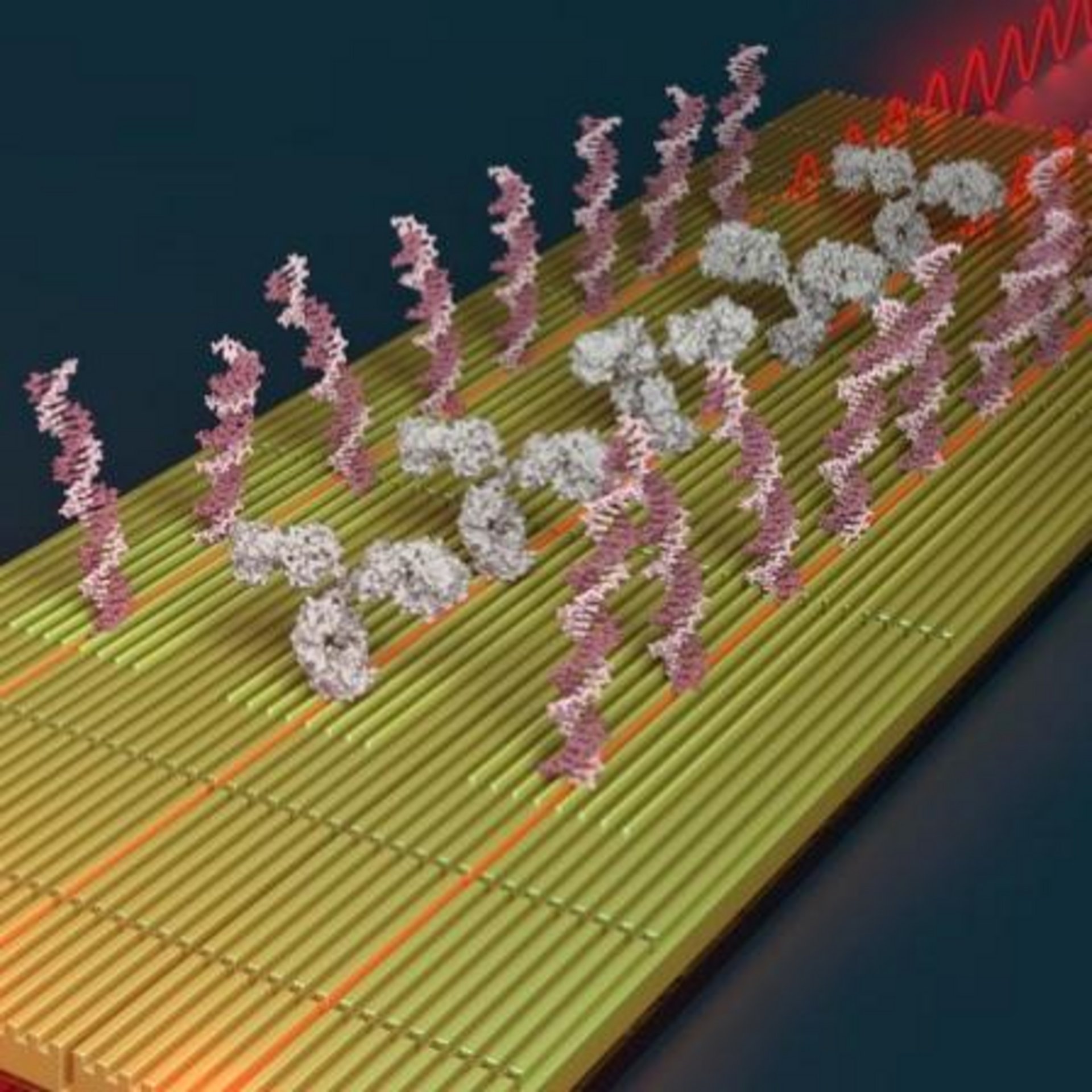
We investigate novel, scalable approaches for sensing properties of matter, down to the single-molecule level, for diagnostic applications at the point-of-need.
Molecular sensors are set to become an integral part of society and will enable us to monitor a range of materials and processes in the lab, in industry and even on or in the body. Applications are far reaching from sustainable manufacturing, biotech, agricultural to the food production chain. This will prove essential for the transition toward personalized and affordable healthcare, a healthy environment for humans as well as animals, and future-proof production facilities. In order to provide such distributed sensor approach, integration of ultra precise sensing principles into chips is an essential step for a plethora of devices that aim for real-time and accurate data at the point-of-need.
To achieve this we develop highly miniaturized sensors incorporating extremely sensitive and specific transduction methods (electrical, optical, mechanical, chemical or magnetic) with an integrated read-out and signal processing system. Here, novel photonics integration is a key enabling technology which together with electronics integration will enable successful translation to market. This will not only ensure efficient integration in small devices that are easily deployed, but also turnkey operation without requiring highly skilled personnel, leading to a next level of automation.
This research line will strongly rely on the TU/e expertise in material science, biomolecular engineering, integrated photonic technology, nanophotonics, microfluidics, electronics, signal processing and organ-on-chip technology. It will establish close cooperation with national and international industry in the healthcare, chemical, agrifood and biotechnology and other high-tech sectors, aiming at the effective valorisation of the research results.